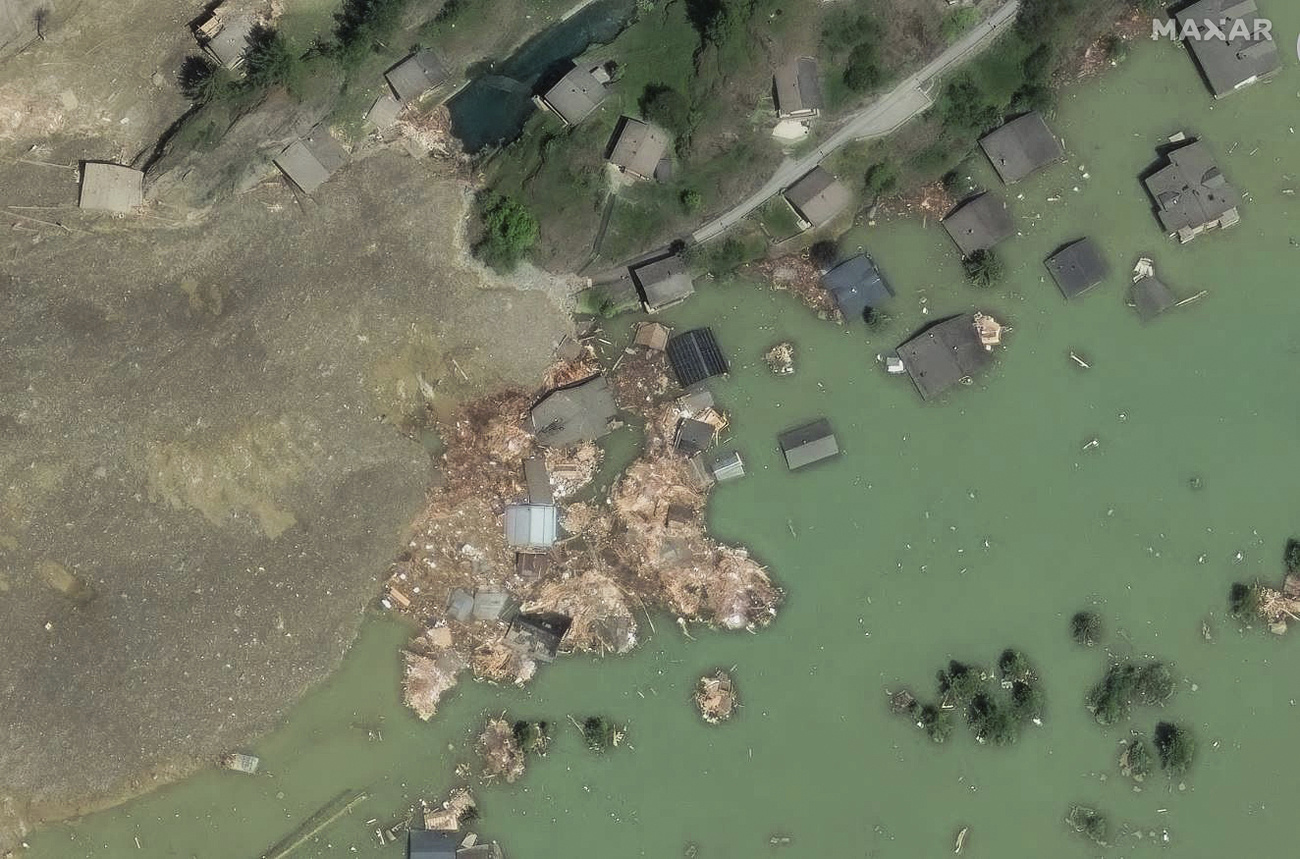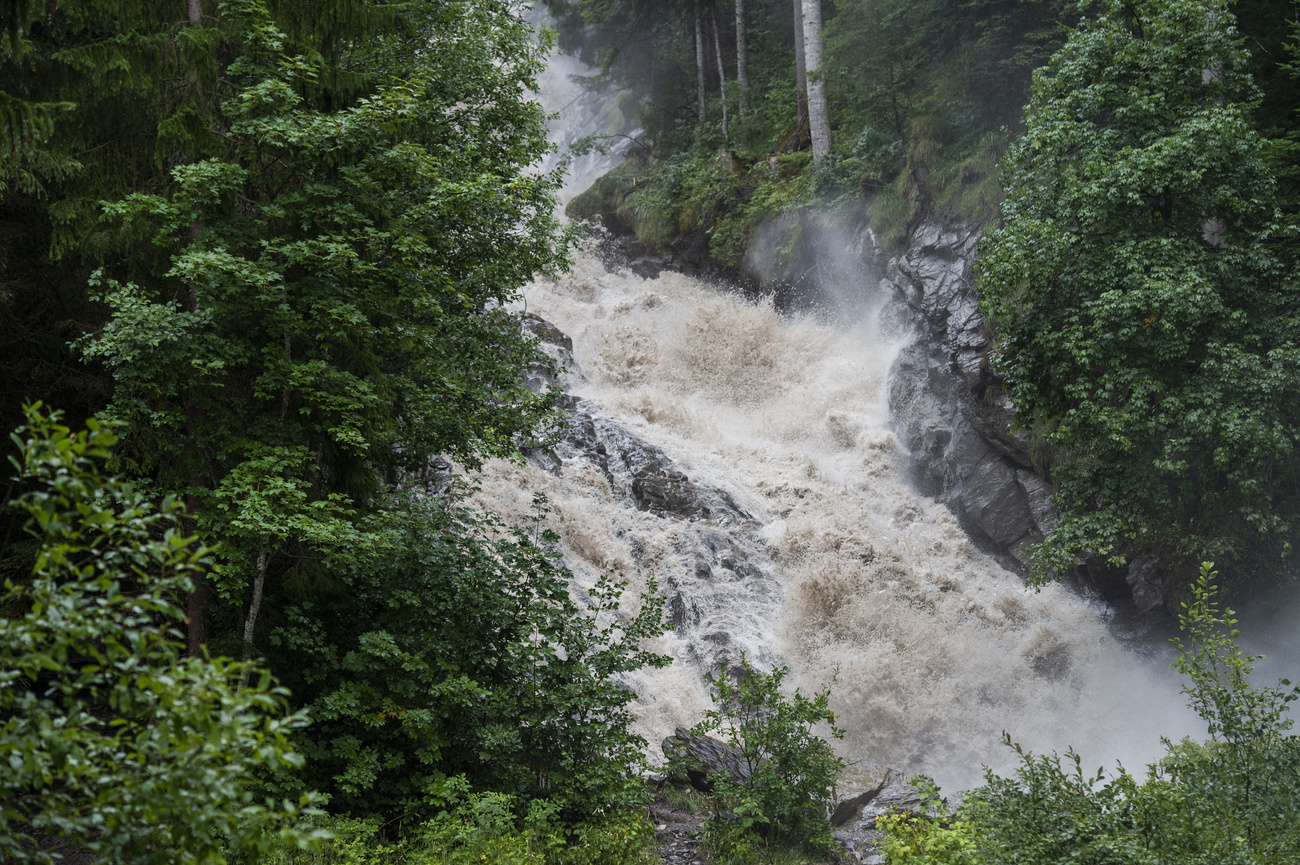
Heavy rainfall floods parts of Switzerland

Areas of Switzerland near to the Rhine between Diepoldsau, canton St Gallen and the mouth of Lake Constance were partially flooded early on Monday morning.
There has been no damage so far, a spokesperson for the International Rhine Regulation agency told the Keystone-SDA news agency.
“We expect the peak of the flood at 8 pm,” said Ralph Dietsche, media person for International Rhine Regulation.
The water level also rose upstream. At Domat-Ems, canton Graubünden, the level of the Rhine was at warning level 3 early Monday morning – denoting considerable danger – SRF Meteo announced.

More
The seven worst landslides in Swiss history
According to SRF Meteo, the high snow line was problematic. Since it was mostly over 3,000 metres at the weekend, practically all the precipitation had drained away. This is particularly dangerous in late summer and early autumn.
It will continue to rain heavily on Monday. However, according to SRF Meteo, with rainfall temporarily shifting from Graubünden towards Valais and the Bernese Oberland. The lower snow line – at 2,000 and 2,500 meters – meant that not all the precipitation ran off.
The intensity of precipitation is also not comparable to the heavy rain in Ticino. More than 360 millimetres of rain fell in Biasca from Saturday noon to early Monday, SRF Meteo said.

More
Floods from melting glaciers: Can they be predicted and prevented?
During the course of Monday, a northerly warm wind will appear in Ticino and most of the rain will end by evening.
In western Ticino, in southern Valais and in Goms, the weather service expects another 80 millimetres of precipitation by midnight. In the north it will still rain on Tuesday where SRF Meteo expects 0 to 20 millimetres of precipitation.
This news story has been written and carefully fact-checked by an external editorial team. At SWI swissinfo.ch we select the most relevant news for an international audience and use automatic translation tools such as DeepL to translate them into English. Providing you with automatically translated news gives us the time to write more in-depth articles. You can find them here.
If you want to know more about how we work, have a look here, and if you have feedback on this news story please write to english@swissinfo.ch.

In compliance with the JTI standards
More: SWI swissinfo.ch certified by the Journalism Trust Initiative



























You can find an overview of ongoing debates with our journalists here . Please join us!
If you want to start a conversation about a topic raised in this article or want to report factual errors, email us at english@swissinfo.ch.